The peak of the riding season brings lots of daylight, long hours in the saddle, and that special feeling at the end of the ride when you're tired but not worn out. But if you spent the winter looking out the window and dreaming of your next big ride, summer brings its own hazards, like biting off a bigger chunk of miles in a day than you can handle, or riding in hot weather. Fatigue and dehydration are two of the biggest hazards long-distance riders face. We know that and so does the Iron Butt Association, which claims some of the best long-distance (LD) riders in the world as members. This hard-won wisdom is available on the IBA website (www.ironbutt.org; click on "29 Riding Tips") and applies not only to Iron Butt Rally riders but anyone planning a day ride or a week's vacation. Here are some highlights:
Know your limits. It’s tempting to look at all the space on the map between where you are and where you want to be, and plan to ride hundreds of miles a day to get there as quickly as possible. While you might cover a lot of ground the first day out, on subsequent days fatigue will likely lower your mileage. Give yourself a break and plan shorter days later in the ride. Put some easy-to-skip loops into your route that you can cut out in case you’re delayed along the way.
Avoid caffeinated beverages like coffee, soda, and energy drinks. If you’re tired enough to need a chemical boost, pull over and rest, or catch a nap on a park bench or a picnic table, a practice LD riders call “checking in to the Iron Butt Motel.” Caffeine has another unwanted side effect. It’s a diuretic, which means it causes your body to excrete water through urine. The more caffeine you drink to relieve your thirst, the more water your body flushes away. You’ll need more time-consuming bathroom stops, too. Stick to plain water, and drink before you’re thirsty, not after.
Eat right. It’s easy to rationalize wolfing down a Double Ratburger with extra grease when you’re in a hurry, but take the time to seek out healthier alternatives that won’t leave you snoozing in the saddle half an hour later. Find a sandwich shop or deli for a lighter meal while you’re on the road, and save the pig-out for dinner when all you need to do until the next morning is not fall out of bed.
Slow down to go fast. It’s counter-intuitive, but it works. Speed takes its toll, in terms of rider fatigue, reduced fuel mileage leading to more frequent gas stops, and lengthy roadside conversations with members of the law-enforcement community. Call ahead and reserve a room so you know where you’re going to end the day’s ride. Then take your time, rest when you’re tired, and get there when you get there.
Bring the right gear. Don’t think it’ll be wet or be cold? That practically guarantees it’ll be both. Nothing snuffs the joy out of a ride or wears you down faster than being cold and wet. If your riding gear isn’t already waterproof, get a good rain suit. If it’s raining it’ll probably be cold, too. An electric vest can be a lifesaver in chilly weather.
Stay hydrated. Dehydration affects your mental and physical reactions, and accelerates symptoms of fatigue like soreness, cramping, and headaches. The initial symptoms include thirst, dizziness, headache, and constipation. Some riding jackets have built-in pockets for hydration systems. If yours doesn’t, get a CamelBak, a backpack with a bladder and a drinking tube. Again, drink before you’re thirsty. Take small sips regularly, even in cold weather––you lose a surprising amount of moisture through your breath.
Know when to stop. Fatigue sneaks up on you so slowly you often don’t recognize the symptoms until it’s too late. If you’re tempted to close your eyes for even a second, get off the bike and rest. The inability to maintain a steady speed is another tip-off. If you find yourself speeding up and slowing down over and over, you’re done. The same goes for indecision. Can’t decide whether to get gas, or which turn to take? Decide on a motel and call it a day. Save making time for when you’re fresh the next morning.
Quick Facts
Stress causes fatigue, so eliminate anything that annoys you about your bike or riding gear. Replace that scratched helmet shield, patch up that leaky seam on your boot, get a gel pad for your seat—do whatever it takes to get rid of distractions that'll sap your attention on the road. Save your mental energy for safe riding, and enjoying the experience.










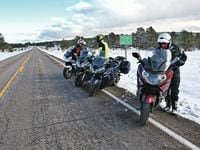
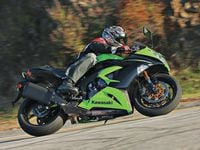
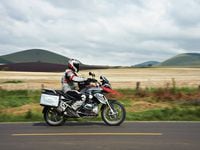
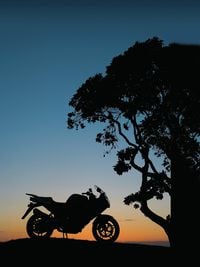
/cloudfront-us-east-1.images.arcpublishing.com/octane/GTCXACQGJ5HAPDTGWUQKDEH44E.jpg)
/cloudfront-us-east-1.images.arcpublishing.com/octane/S35YGSEMEZB4BLTDJTSZPF4GLA.jpg)
/cloudfront-us-east-1.images.arcpublishing.com/octane/5UOT6HPX2JFMRJAX6EH45AR4MQ.jpg)
/cloudfront-us-east-1.images.arcpublishing.com/octane/OKWOJWAKP5EP3OACCRRWPCIX2Q.jpg)
/cloudfront-us-east-1.images.arcpublishing.com/octane/2WF3SCE3NFBQXLDNJM7KMXA45E.jpg)
/cloudfront-us-east-1.images.arcpublishing.com/octane/G4MG6OUCJNBSHIS2MVVOTPX65E.jpg)
/cloudfront-us-east-1.images.arcpublishing.com/octane/IIGGWFOTOJGB7DB6DGBXCCMTDY.jpg)
/cloudfront-us-east-1.images.arcpublishing.com/octane/QSTCM6AVEZA5JJBUXNIQ3DSOF4.jpg)
/cloudfront-us-east-1.images.arcpublishing.com/octane/U4I7G625B5DMLF2DVIJDFZVV6M.jpg)
/cloudfront-us-east-1.images.arcpublishing.com/octane/B6XD6LS6IVCQPIU6HXDJSM3FHY.jpg)
/cloudfront-us-east-1.images.arcpublishing.com/octane/ICL63FEDDRDTTMINYICCEYGMDA.jpg)
/cloudfront-us-east-1.images.arcpublishing.com/octane/FCGZHQXRBZFLBAPC5SDIQLVF4I.jpg)
/cloudfront-us-east-1.images.arcpublishing.com/octane/WNOB6LDOIFFHJKPSVIWDYUGOPM.jpg)
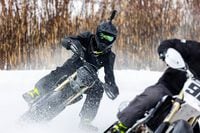
/cloudfront-us-east-1.images.arcpublishing.com/octane/X33NU3E525ECRHXLNUJN2FTRKI.jpg)
/cloudfront-us-east-1.images.arcpublishing.com/octane/6KKT5NNL2JAVBOXMZYS5ZO76YA.jpg)
/cloudfront-us-east-1.images.arcpublishing.com/octane/J5RKG5O455GMPGQRF2OG6LRT7A.jpg)
/cloudfront-us-east-1.images.arcpublishing.com/octane/GX2CIZKQVRH2TATDM26KFG2DAE.jpg)
/cloudfront-us-east-1.images.arcpublishing.com/octane/ZWIDYSAKQZHD5BHREMQILXJCGM.jpg)
/cloudfront-us-east-1.images.arcpublishing.com/octane/CYUHJZCTSJCH3MRAQEIKXK7SCQ.jpg)
/cloudfront-us-east-1.images.arcpublishing.com/octane/LKOFINY56FCXJCANJ5M7ZDQUBY.jpg)
/cloudfront-us-east-1.images.arcpublishing.com/octane/4NBPDACMWJH63JQYJVK3QRBDZI.jpg)
/cloudfront-us-east-1.images.arcpublishing.com/octane/KKHQHRR3FJGX7H2IPU6RALMWG4.jpg)
